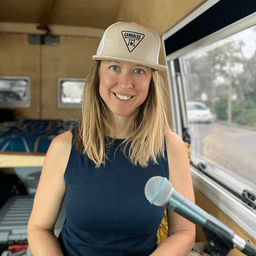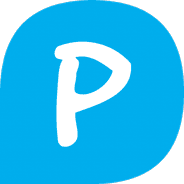How One Van Life Blog Bounced Back After Google’s Helpful Content Hit


Business Description
Table of Contents
Navigate through the case study sections
Executive Summary
Case Study Content
Background and Impact of the Helpful Content Update
In September 2023, Google rolled out its Helpful Content Update (HCU) to reward authentic, people-first writing. One established B2C blog, The Wayward Home, lost nearly 58% of its search traffic and saw affiliate income plunge by almost 89%. The founder, Kristin Hanes, had built monthly pageviews up to 400,000 and revenue to $25,000 through organic search, Pinterest, and Facebook tactics. But after HCU, traffic slid to 170,000 visits and affiliate earnings crashed from $8,000–$9,000 to about $1,000.
Diagnosing the Problem
Kristin dug into Google Search Console and realized many long-tail posts were written by third-party writers without personal experience. These third-person SEO articles lacked the first-hand voice Google now prioritizes. She identified that the content felt generic and didn’t satisfy human readers seeking practical advice.
Revamping Content with First-Hand Stories
To align with HCU’s people-first mandate, Kristin began updating her older posts. She hired a writer embedded in the van life community to interview friends, swapping dry keyword lists for genuine experiences. Articles on heating systems, solar setups, and DIY van builds gained interview quotes, photos, and lesson-learned tips, making each post feel like a conversation rather than a search-engine bait.
Injecting Social-Friendly Formats
Beyond SEO, Kristin added more social-friendly pieces: inspiring listicles (“7 Tiny Vans That Feel Like Castles”) and Q&A interviews. These fun, snackable reads boosted click-through rates on Facebook and Pinterest and reintroduced the blog’s original vibe, stories she wrote at the beginning of her journey.
Building Alternative Traffic Channels
Seeking to reduce reliance on Google, Kristin launched a new Facebook page, “Van Life Collective.” She posted five times daily via Buffer, each share an image plus caption link. In one month, Facebook referrals jumped 600%. She’s also syndicated posts on MSN.com to tap high-authority backlinks and new audiences, driving fresh traffic back to her site.
Key Results and Next Steps
Within three months of her strategy shift, The Wayward Home saw organic rankings slowly recover and reader engagement climb. Social traffic now accounts for 30% of visits, reducing volatility from Google updates. Kristin continues to update underperforming posts, expand her Facebook audience, and test YouTube shorts to capture a cross-section of van life enthusiasts.
Key Takeaways
- 1Authentic, first-hand experiences rank higher under Google’s Helpful Content Update than generic SEO articles.
- 2Refreshing older posts by interviewing community members can breathe new life into underperforming content.
- 3Adding social-friendly formats like listicles and Q&A articles boosts engagement on platforms like Facebook and Pinterest.
- 4Creating a niche-specific Facebook page and posting consistent, image-led updates can yield a 600% traffic increase.
- 5Syndicating content on high-authority sites such as MSN.com builds backlinks and attracts new audiences.
- 6Diversifying traffic sources reduces dependence on search engines and buffers against future algorithm changes.
Key Facts
Tools & Technologies Used
Premium Content Locked
Subscribe to access the tools and technologies used in this case study.
Unlock NowHow to Replicate This Success
Premium Content Locked
Subscribe to access the step-by-step replication guide for this case study.
Unlock NowInterested in Being Featured?
Share your success story with our community of entrepreneurs.
Explore More Case Studies
Discover other inspiring business success stories

How a 26-Year-Old Built The Oodie Into a $150M E-Commerce Powerhouse
The Oodie makes oversized, hooded wearable blankets that blend comfort and style, shipping worldwide. Launched in 2018 b...
The Oodie

How Pushgram Leveraged Instagram Automation to Build a $40K Profit SaaS
Pushgram is a SaaS platform that automates Instagram growth for small businesses. By mimicking organic interactions like...
Pushgram

How Paid Media Fueled a 7-Figure Affiliate Exit
After years of relying solely on SEO, Alex Goldberg faced a sudden 50% traffic drop from Google’s Helpful Content Update...
Fin vs Fin Portfolio
